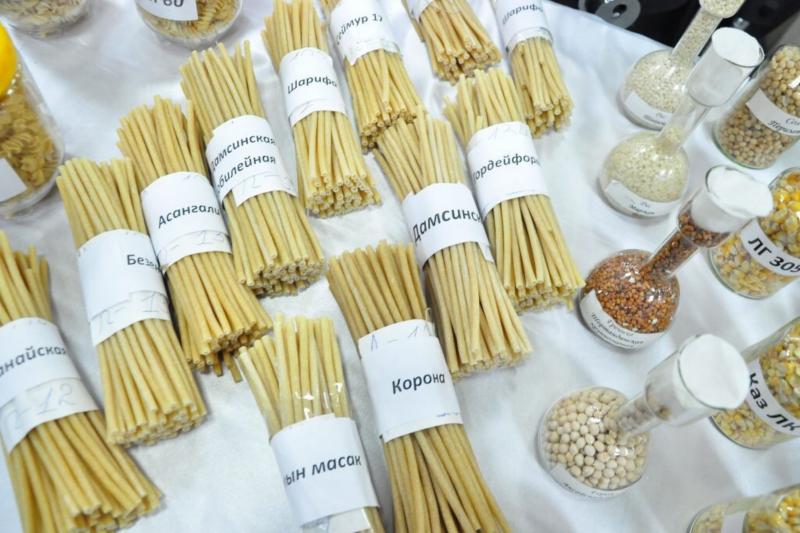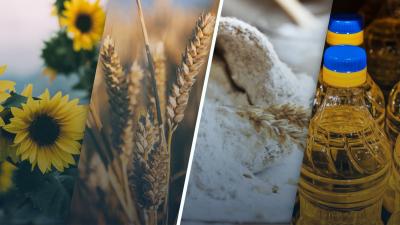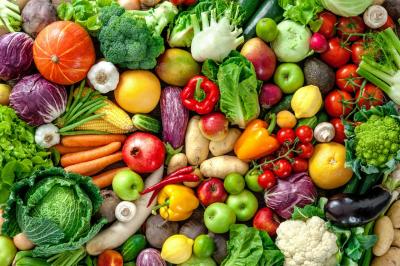
More and more farmers are aware of the dependence of the economic effect of their farms on the choice and quality of seeds. In Kazakhstan, variety renewal and varietal replacement of seeds is not a new thing. The state variety testing network was established back in 1937. Over its 84-year history, hundreds of varieties were tested and created, which are successfully used by domestic agrarians.
The head of the State Variety Testing Commission on Agricultural Crops Talgat Azhgaliyev told the World of NAN portal about the work of Kazakhstan's stations, about the best varieties included in the State Register.
As noted by Talgat Bulatovich, currently variety testing network is represented by 12 regional branches, which include 67 state variety testing plots and 3 state variety testing stations, covering the main soil and climatic zones of the country.
The main objective of the state variety testing is an objective and reliable comparative evaluation of new varieties of plants of domestic and foreign selection in different soil and climatic zones of the country, identification of the most suitable economically useful features. And then - the recommendation to use them in the agricultural production of the country. When testing the varieties, experts pay special attention to the examination and testing of breeding achievement for novelty, distinctiveness, stability, patentability.
According to the head of the State Commission, in connection with diversification of agricultural production of the country the crucial point is cardinal change of variety composition of cereal crops by means of the new, superior in yield and quality modern varieties, introduction of non-traditional for our culture of agriculture leguminous, oilseed and cereals crops.
More than 200 applications are received each year for state testing, with an increase in applications for varieties and hybrids of foreign breeding, as the state commission notes.
"If in 2012 the share of varieties and hybrids of foreign selection was 55% of the total number of varieties applied for testing, in 2020 it was 86%. It can be noted that almost all the best varieties of the world selection are represented in the market of Kazakhstan,"¬ says Talgat Bulatovich.
According to him, Russia, Ukraine and Belorussia are the most active in grains, oilseeds, vegetables and forage crops among the neighboring countries. As for corn, vegetable, industrial crops and potatoes the leading selection is from far-abroad countries - France, Germany, USA, Netherlands, Switzerland and others.
As of today there are 2526 varieties/hybrids of crops in the State Register of Selection Achievements recommended for use in the Republic of Kazakhstan, reports the head of the State Commission. Of these, 32.3% or 815 varieties are domestic selection. 53 varieties of joint selection (2.1%), and 65.6% or 1,658 varieties/hybrids of foreign selection.
T.Azhgaliyev proudly notes that as before, the leading positions are taken by domestic selection on grain, fodder and cereals. But the oilseeds, corn, vegetables and potatoes are still behind the competition.
According to test results, 203 varieties and hybrids of agricultural plants are proposed for production for the first time since 2020. Including: on cereals, legumes and corn 52, oilseeds and technical - 39, vegetables and potatoes - 64. In total there were tested 315 varieties of cereals, of which 185 varieties of native selection (58,7%), 8 varieties of joint selection (2,5%), 122 varieties of foreign selection (38,7%). Good indicators for domestic cereals and fodder crops. Among cereals only 63 varieties were offered including 37 varieties of domestic selection. Out of 275 varieties/hybrids of fodder crops 54.2% are of domestic selection.
For the current year, according to the data of the State Variety Testing Commission 115 varieties/hybrids were proposed for production. Among them there are 12 varieties of cereal crops (4 of domestic, 3 of joint and 5 of foreign selection), 15 hybrids of maize of foreign selection, 2 varieties of cereals of foreign selection, 5 varieties of grain legumes (1 of domestic selection, 4 of foreign selection), 2 varieties of grain sorghum of foreign selection. Besides 19 varieties/hybrids of oil crops (6 of domestic, 13 of foreign selection), 3 foreign hybrids of industrial crops, 29 varieties/hybrids of forage crops (3 of domestic, 26 of foreign selection), 7 varieties of potato of foreign selection, 20 varieties/hybrids of vegetable and melon crops (1 of domestic, 19 of foreign selection), 1 variety of fruit crops.
Now in the trial is only 1286 varieties of domestic, 786 varieties of foreign and 26 varieties of joint selection, said T.Azhgaliyev.
He assures that thanks to the work of the Variety Testing Commission, domestic agrarians have a huge range of seeds with excellent reputation. So, in recent years, according to the results of varietal testing to production of the country the varieties of domestic selection Arap improved, Daulet, Egemen-20, Matay, Mamyr were offered for winter wheat in the south. The varieties of domestic selection Aina, Karagandinskaya 60, Shortandinskaya 2014, Augustine, Asyl Sapa, Karagandinskaya 31, Karagandinskaya 30, Fantasia are proposed for spring wheat in the north. Including varieties of mid-early ripeness group Shortandinskaya 2012,Tauelsizdik 20.
"Of the domestic varieties, we can note the variety Aina, a selection of Karabalyk agricultural production association, which showed not only high yields, good grain quality, but also resistance to major types of diseases: brown rust, dusty mildew and root rot. We can also stop at the variety of Karaganda Research Institute of Plant Cultivation and Selection. It is Karagandinskaya 31, Karagandinskaya 30 which also showed high plasticity and good quality, by results of tests is recommended on many areas of republic", - tells T. Azhgaliyev.
19 varieties of barley are tested and successfully sown throughout the country. Among them there are not only grain varieties, there are brewing and fodder varieties. Grain and fodder varieties of domestic selection of Ilek 36, Medikum 18, Sabir, Tselinniy 60, and Tselinniy bare grain, according to Mr. Azhgaliyev, have long ago won recognition of Kazakh farmers.
As for oilseeds, 111 varieties and hybrids have been included in the State Register in recent years. Including 66 varieties and hybrids of sunflower, including 11 varieties of domestic selection, 55 hybrids of foreign selection. Varieties and hybrids with high fat content of domestic sunflower breeding have proven most successful. Such as Zhaidarman, Rauan, Kun Nury, Patriot, hybrids VKNIISKh-2011, Kazakhstan 95, Narym, Astana 109. Of the 16 varieties of soybeans, 7 domestic selection, with high protein content. These are Danaya, Sabira, Akkyu, Pamyat YUGK, Birlik KV, and Ivushka.
It should be noted that domestic breeders are still inferior to foreign colleagues in volume of rapeseeds. Thus, if in total there are 23 varieties and hybrids of spring rapeseed in the state register, 4 varieties of domestic and 19 hybrids of foreign selection.
As noted in the State Commission, all four varieties of domestic rapeseed - Maykudyk, Mayly dan, Shalkar 39, LipKar 2014 have a high fat content. Among oilseed flax, the Libra variety of domestic selection is especially popular.
"There are 36 Kazakh selection institutions engaged in selection of agricultural crops in the Republic, including 25 organizations belong to subsidiaries of NJSC "National Agrarian Scientific and Educational Center". (NASEC). Of them, 17 institutions (10 institutions of NASEC) are engaged in selection of cereal crops. In the above institutions are engaged in selecting varieties of 51 plants", - says our interlocutor.
And adds that only in the period from 2015 to 2020 Kazakh geneticists released more than 28 varieties of wheat, which by results of state variety trials showed their high productivity, economically valuable features and were included in the State Register of Selection Achievements, recommended in the Republic of Kazakhstan.
The expert particularly notes such highly effective new varieties of domestic wheat as "Aina", "Fantasia" and "Lamis", bred by "Karabalyk agricultural experimental station" LLP, recommended by Akmola, Kostanay, North Kazakhstan regions in 2018. "Karagandinskaya 30" and "Karagandinskaya 31", created by Karaganda Research Institute of Plant Cultivation and Selection LLP, proved themselves perfectly. Excellent performance in "Shortandinskaya 2012" and "Shortandinskaya 2014", bred by LLP "Research and Production Center of Grain Production A.I. Barayev,
Russian selection are included in the State Register from 2015 to 2020 9 varieties of soft wheat, foreign selection 5 varieties.
"I want to especially emphasize, that varieties of domestic selection as a result of variety trials are not inferior to varieties of foreign selection, as our selection institutions have good base of genetic resources and experienced selectionists. Kazakhstan varieties are stable in terms of yield, protein and gluten content", - says Talgat Bulatovich continuing the conversation.
As for barley varieties, in the period from 2015 to 2020, Kazakh breeders bred and included in the state register more than 10 varieties (grain, brewing, and forage). In their breeding, the special merit of specialists of Aktobe ARPS and "KazNIIZIR" LLP, "Karabalyk ARPS" LLP, "NPPZKh" LLP named after A.A. Dukhov" LLP, "A.A. Dukhov" LLP and "KazNIIZhir" LLP. А.
From 2015 to 2020, Kazakh scientists released more than 9 varieties of oats, which were included in the state register. These are such varieties with sonorous names as "Baizat", "Duman", "Sulu", "Syrgalym", etc.
For 5 years, from 2015 to 2020, 3 hybrids and 1 variety of corn of domestic selection were included in the number of selection achievements. In the absence of a large assortment, Kazakh farmers are also working with foreign varieties. Especially popular among farmers are varieties of Russian, French, Swiss, Bulgarian and Moldovan selection.
The situation is much better in varieties and hybrids of oil-bearing crops, selection of which is engaged in 9 selection institutions. Kazakhstan selectionists for 5 years have released more than 32 varieties and hybrids of oilseeds, including sunflower - 18, spring rapeseed - 4, soybean - 8, oilseed flax - 1, safflower - 1 variety.
In general, selection research, aimed at creating high-yield varieties and hybrids, resistant to diseases, climatic conditions, according to the head of the State Commission, never stop. Kazakhstan selectionists are working to improve the biochemical composition of new varieties demanded by domestic agrarians.












































Обсуждение